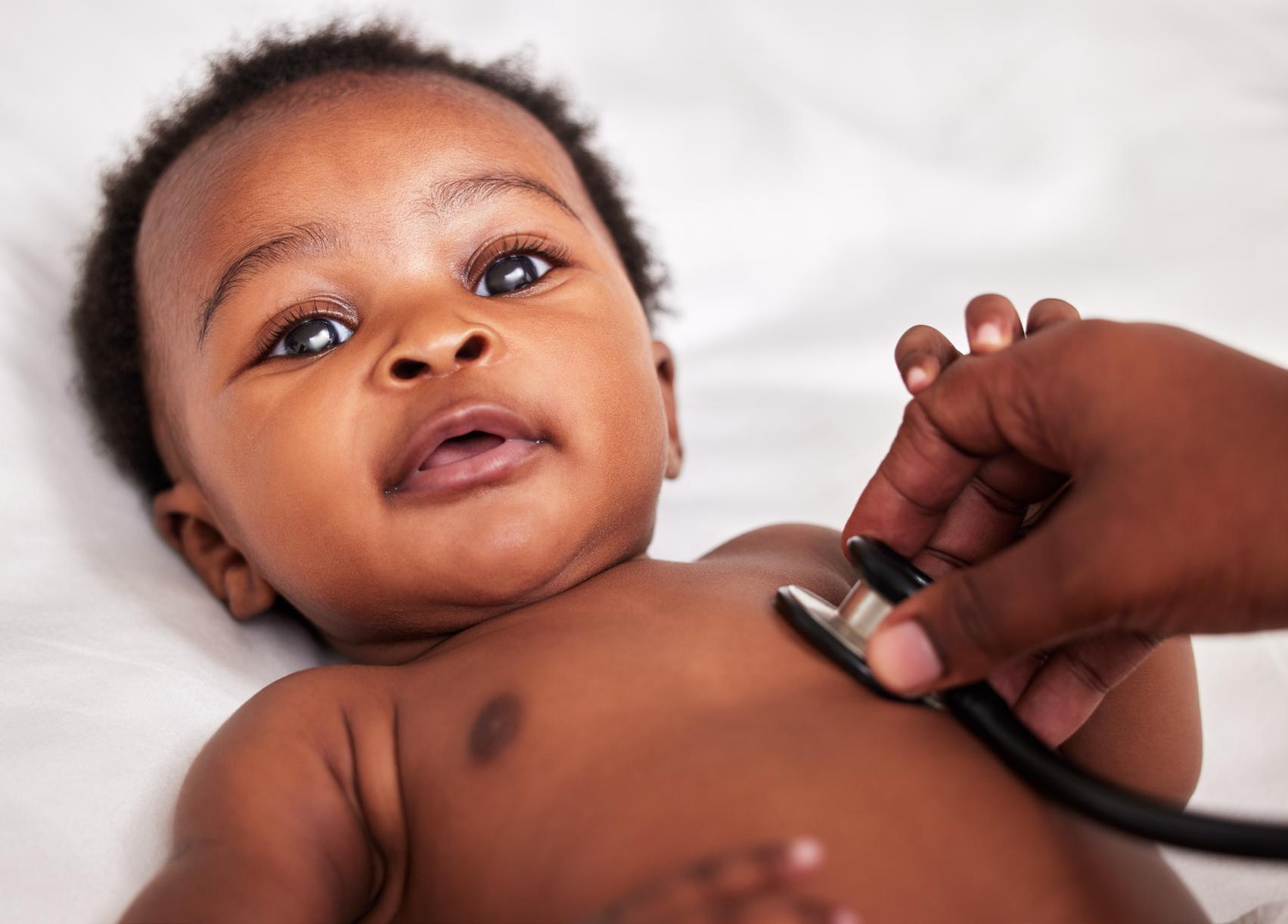
11 minute read
A New Chapter in Respiratory Syncytial Virus (RSV) Management
Jonathan Doles, PharmD, CSP, Hansel Fernandes, PharmD,
Respiratory syncytial virus (RSV) is a single-stranded, negative-sense ribonucleic acid (RNA) respiratory virus that infects the lungs and airways.1 RSV affects patients of all ages and causes upper respiratory cold-like symptoms, such as runny nose, cough, sneezing, and fever.2 However, some patients, especially the elderly and infants, are at risk for developing more serious illness. RSV can also lead to exacerbations of serious underlying conditions such as asthma, chronic obstructive pulmonary disease (COPD), and congestive heart failure. Because clinical symptoms of RSV are nonspecific and overlap with other respiratory infections, there are several types of laboratory tests to confirm an RSV infection. These include real-time reverse transcriptase-polymerase chain reaction (rRTPCR), antigen testing, viral cultures, and serology.3,4
Annually in the United States, RSV leads to approximately 2.1 million outpatient visits and 58,000 hospitalizations among children younger than five years of age.2 RSV is the most common cause of lower respiratory tract infections (LRTIs) in children younger than one year.3 Acute bronchiolitis due to RSV is the leading cause of U.S. infant hospitalizations.⁵ In the global population, RSV is estimated to cause 2.3% of deaths among neonates 0 to 27 days old, 6.7% of deaths among infants 28 to 364 days old, and 1.6% of deaths among children 1 through 4 years old.6 In adults 65 years and older, RSV leads to approximately 177,000 hospitalizations and 14,000 deaths per year.1 The mortality rate among hospitalized adults 50 years and older is 6 to 8%.7 Annually in the United States, the treatment cost of RSV in infants is $709.6 million.5 In patients 60 years and older, RSV-related direct health care costs are estimated to be $3.2 billion for hospitalized patients, $690 million for outpatient care, and $23 million for ill, nonmedically attended patients per year.8
Among infants and children, high risk patients include premature infants, infants younger than six months, children younger than two years with chronic lung disease or congenital heart disease, immunosuppressed children, and children with neuromuscular disorders.1 Among adults infected with RSV, symptoms are usually consistent with an upper respiratory infection and the virus lasts less than five days. Some adults may have more severe symptoms consistent with a LRTI, such as pneumonia. Adults older than 65 years, those with chronic heart or lung disease, and the immunocompromised are at risk for more severe illness.1
RSV causes seasonal outbreaks throughout the world. In the U.S., RSV primarily occurs during the fall, winter, and spring, but the timing and severity of RSV season can vary from year to year. Disruption of the typical seasonal pattern, such as during the COVID-19 pandemic, may result in off-season outbreaks.1,3,4
Current treatment
Mild RSV infections will typically resolve in one to two weeks with supportive care, such as rest and hydration. Over-the-counter fever reducers (such as acetaminophen) and pain relievers (such as ibuprofen and naproxen) can help manage symptoms.4 Patients that require hospitalization may need oxygen, intubation, and mechanical ventilation.1 There are no FDA-approved agents for the treatment of RSV. Until recently, Synagis® (palivizumab), a recombinant humanized monoclonal antibody, had been the only FDA-approved agent for the prevention of RSV.9 The recommended dose of Synagis® is weight based and given once a month throughout the RSV season (typically five doses) and costs approximately $5,000 to $10,000 per treatment course.2 Synagis® is not recommended or FDAapproved for RSV prevention in adults.9
Synagis® has a specific use and is indicated for the prevention of serious lower respiratory tract disease caused by RSV in pediatric patients:
• With a history of premature birth (≤ 35 weeks gestational age) and who are six months of age or younger at the beginning of RSV season
• With bronchopulmonary dysplasia (BPD) that required medical treatment within the previous six months and who are 24 months of age or younger at the beginning of RSV season
• With hemodynamically significant congenital heart disease (CHD) and who are 24 months of age or younger at the beginning of RSV season
RSV activity usually begins in the late fall and extends through spring. During the COVID-19 pandemic, measures such as mask wearing and social distancing were associated with reductions in non-COVID-19 respiratory infections in children, including RSV, during the winter season. Now that those measures have been relaxed, however, an increase in interseasonal RSV activity in the spring and summer has been observed in some regions. The American Academy of Pediatrics (AAP) makes recommendations for the use of palivizumab, and their recommendations have changed with the varying RSV season. For the 2022 - 2023 season, the AAP issued updated guidance for the use of palivizumab prophylaxis to prevent hospitalization from severe RSV infection. The AAP supports continued palivizumab use (more than the typical five doses) in regions where RSV activity remains high.10,11
Pipeline/New agents
Two vaccines, as well as a monoclonal antibody, are in late-stage development or have recently been FDAapproved for RSV prevention. The two vaccines are GlaxoSmithKline’s (GSK) Arexvy® and Pfizer’s Abrysvo®. The monoclonal antibody is AstraZeneca/Sanofi’s nirsevimab. One of the major differences between the vaccines is that Arexvy® is only being studied for the adult population, while Abrysvo® is being evaluated for adults and pediatrics. For the pediatric indication, some literature refers to Abrysvo® as RSVpreF.2
The two vaccines would help fill the unmet need for RSV prevention in the adult population. Both are one-dose vaccines given in preparation for RSV season. Arexvy® was approved on May 3, 2023, and is the first RSV vaccine approved for the older adult population.12 Abrysvo® was also approved for the same population shortly after on May 31, 2023. The FDA has also granted priority review to Abrysvo® for use in healthy individuals in late pregnancy to help protect infants from RSV disease after birth, with a decision expected by August 2023.2,13,14
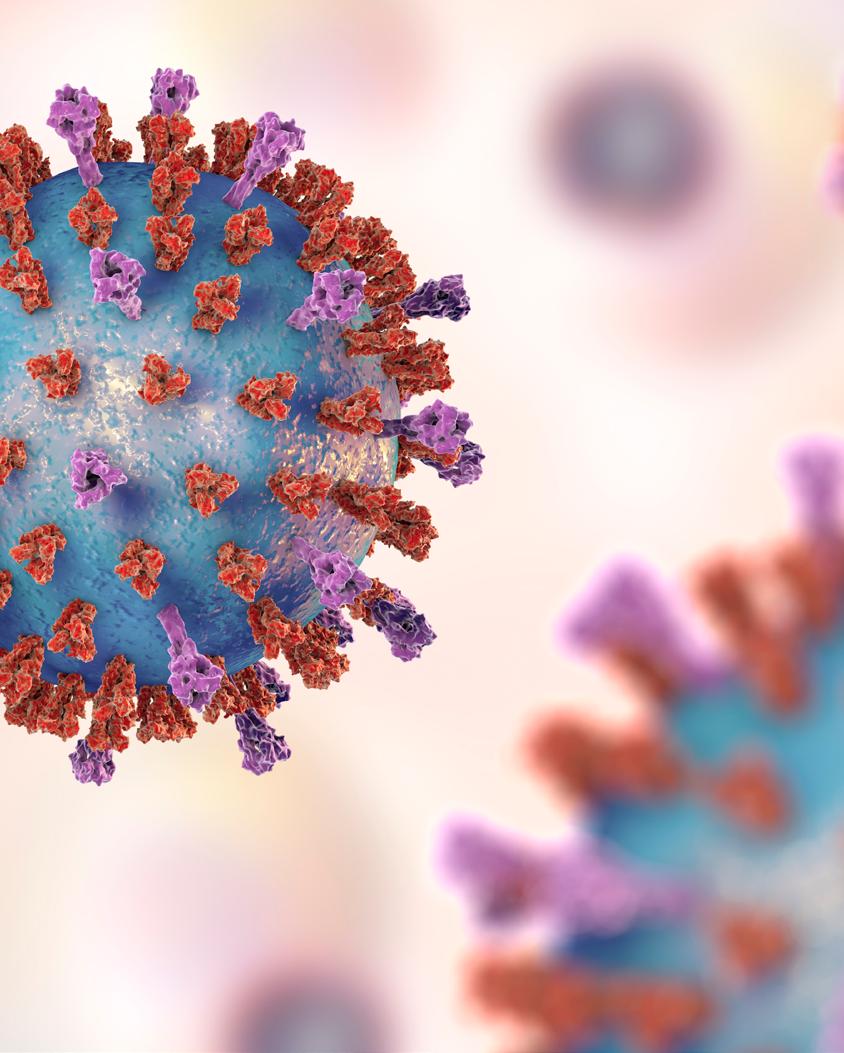
AstraZeneca/Sanofi’s monoclonal antibody, nirsevimab, is being evaluated for the prevention of RSV infections in healthy and high-risk infants. If approved, nirsevimab may compete with Pfizer’s RSV vaccine for the infant protection. Additionally, it would compete with Synagis® for the indication of infants and young children at high risk of serious RSV. The FDA accepted the Biologics License Application (BLA) in January 2023, and approval is possible in third quarter of 2023.2, 15,16
Agents
Arexvy®
Clinical Summary
GSK’s vaccine, Arexvy®, contains a recombinant subunit prefusion RSV F glycoprotein antigen combined with GSK’s proprietary AS01E adjuvant.17 On March 1, 2023, the FDA Vaccines and Related Biological Products Advisory Committee (VRBPAC) voted in favor of approval unanimously 12-0 on effectiveness and 10-2 on safety.2 Arexvy® was formally approved on May 3, 2023, for the prevention of LRTI in adults 60 years of age and older. GSK has yet to disclose a specific price, but company executives have indicated it will cost between $60 to $185.12 The exact final price will not be known until the vaccine formally hits the market.
Clinical Trials
Abrysvo®/ RSVpreF (for pediatric use) CLINICAL SUMMARY
Pfizer is pursuing approval for a bivalent vaccine candidate that would offer RSV protection for both older adults and infants. If approved, RSVpreF will be administered to healthy individuals in late pregnancy to help protect infants from RSV disease after birth. Unlike Arexvy®, Abrysvo® does not contain an adjuvant, which may improve tolerability. The FDA VRBPAC voted in favor of approval 7-4 on effectiveness and 7-4 on safety of Abrysvo®.2,19 Some advisory committee members had more hesitations about Abrysvo® than Arexvy® due to not enough patients in Pfizer’s trial being infected with RSV to assess the vaccine’s efficacy. Additionally, advisers expressed concern about the potential for Abrysvo’s® association with Guillain-Barre syndrome. The FDA asked Pfizer to perform a post-marketing study to further evaluate the risk.2,20 Abrysvo® was formally approved on May 31, 2023, for the prevention of LRTI in adults 60 years of age and older. The indication for infants is expected by August 2023. This vaccine is likely to be priced similarly to Arexvy®.2 The exact final cost will not be known until the vaccine formally hits the market.
Clinical Trials
2,17,18
The phase 3 trial evaluating Arexvy®, AReSVi 006, enrolled 25,000 adults 60 years of age and older. Results indicate that the vaccine met the primary endpoint and reduced cases of LRTI by 82.6% when compared to a placebo. The efficacy results were higher among more severely ill patients with two or more lower respiratory signs/symptoms, with a 94.1% reduction. The vaccine protection was considered statistically significant in all patient groups except two. In patients 80 years and older, only two participants receiving the vaccine and three given a placebo acquired RSV, which was not statistically significant. Likewise, the difference was not statistically different among participants considered frail. The trial is ongoing and will continue to analyze the annual revaccination schedule and long-term protection over multiple seasons after a single dose of the vaccine.
Abrysvo® has phase 3 data in pregnant women and older adults.21 The phase 3 RENOIR trial enrolled 30,000 adults age 60 and older. An interim analysis found the Abrysvo® vaccine offered 66.7% efficacy in protection against RSVassociated lower respiratory tract illness (defined by two or more symptoms). Efficacy in protection against three or more symptoms was 85.7%.2,21 The phase 3 MATISSE trial enrolled 7,400 patients and evaluated the vaccine versus placebo in pregnant patients. The study investigated the RSVpreF vaccine for the prevention of medically attended lower respiratory tract illness (MA-LRTI) and severe MA-LRTI caused by RSV in infants from birth up to 6 months of age by active immunization of pregnant individuals. RSVpreF was shown to be 81.8% effective in preventing severe MA-LRTI through the first 90 days of life, however, it dropped to 69.4% efficacy at the sixmonth mark.2
Nirsevimab
Clinical Summary
AstraZeneca/Sanofi’s nirsevimab is a single-dose fusion antibody with an extended half-life. Nirsevimab is being evaluated in two phase 3 clinical trials, MELODY and MEDLEY. Nirsevimab is being developed as a preventive RSV option for the broad infant population, including healthy term or preterm infants. Unlike Synagis®, which is administered on a monthly dose schedule, nirsevimab has the advantage of a single-dose administration due to its extended half-life.2,15,16 The manufacturers are also pursuing an indication for RSV prevention during the second RSV season for infants at high risk based on data from the MEDLEY trial. Nirsevimab is expected to cost less than $5,000 for a single dose.2 As with the other pipeline agents, the final cost for nirsevimab will not be known until the product is approved and hits the market.
Clinical Trials
Results from three trials demonstrated that nirsevimab protects infants during their first RSV season against RSV infection with a single dose. In the Phase 2b randomized, placebo-controlled study, nirsevimab showed a significant reduction in medically attended LRTI and hospitalizations caused by RSV in healthy preterm infants compared to placebo. Data from the phase 2b study was used to recommend dosing for the subsequent phase 3 trial, MELODY.2,15,16
In the phase 3 randomized, placebo-controlled MELODY trial, nirsevimab met the primary endpoint with a statistically significant reduction in the incidence of medically attended LRTI compared to placebo in healthy late preterm babies (35 weeks gestational age or greater) entering their first RSV season. Medically attended RSV occurred in 1.2% of infants in the nirsevimab group, and 5% in the placebo group. These findings correspond to an efficacy of 74.5%. Hospitalization for RSV associated LRTIs occurred in six infants in the treatment group, and eight infants in the placebo group. It should be noted that COVID-19 limited the incidence of RSV infection during the trial, which investigators believe led to lower hospitalizations overall.2,15,16
In the phase 2/3, randomized, double-blind, Synagis®controlled MEDLEY trial, the safety and tolerability of nirsevimab was compared to Synagis® among 925 preterm and high-risk infants entering RSV season. Infants with congenital heart disease (CHD) and/or chronic lung disease of prematurity (CLD) were included. Results showed nirsevimab has a similar safety profile to Synagis®. This safety profile was also consistent with the safety profile in term and preterm infants studied in the MELODY Phase 3 trial.2,15,16
Public health need
With Synagis® as the only RSV preventive option, there is a clear public health need for alternatives. Pending approval there could be three new products at the start of the next RSV season. Arexy®, Abrysvo®, and nirsevimab represent just a few of the many therapies that are in research and development for RSV. Moderna and Bavarian Nordic are also developing products that are currently in phase 3 trials.2 Because patients will respond differently to these preventive agents based on their age and immune status, researchers and physicians are hopeful with the variety of options that are in development and are eagerly awaiting the AAP update to see where these products fall in guidelines.13,14
References
1. “Respiratory Syncytial Virus Infection (RSV) For Health Care Providers,” Centers for Disease Control and Prevention. Last updated October 28, 2022. https://www.cdc.gov/rsv/clinical/ index.html
2. “Infectious Diseases: Respiratory Syncytial Virus (RSV),” IPD Analytics, https://secure.ipdanalytics.com/User/Pharma/RxStrategy/Page/ df263e54-1655-4e2b-bd46-56a6c0886803#section-group-418884/
3. Frederick E Barr and Barney S Graham, “Respiratory syncytial virus infection: Clinical features and diagnosis,” UpToDate, Last updated April 22, 2022. https://www.uptodate. com/contents/respiratory-syncytial-virus-infection-clinical-features-and-diagnosis?search=rsv%20pathophysiology&source=search_result&selectedTitle=1~150&usage_ type=default&display_rank=1
4. Frederick E Barr and Barney S Graham, “Respiratory syncytial virus infection: Treatment,” UpToDate, Last updated April 22, 2022. https://www.uptodate. com/contents/respiratory-syncytial-virus-infection-treatment?search=rsv%20 treatment&source=search_result&selectedTitle=1~150&usage_type=default&display_rank=1
5. Diana M Bowser et al., “Cost of Respiratory Syncytial Virus Infections in US Infants: Systematic Literature Review and Analysis,” J Infect Dis, Vol 226, 2022, pp 225-235.
6. Ting Shi et al., “Global, regional, and national disease burden estimates of acute lower respiratory infections due to respiratory syncytial virus in young children in 2015: a systematic review and modelling study,” Lancet, Vol 390, 2017, pp 946-958.
7. Ann D Colosia et al., “The epidemiology of medically attended respiratory syncytial virus in older adults in the United States: A systematic review,” PLoS One, Vol 12, 2017.
8. Jessica K DeMartino et al., “Annual economic burden of respiratory syncytial virus infections among the 60+ population in the United States,” J Manag Care Spec Pharm, Vol 28, 2022, pp S1-S137.
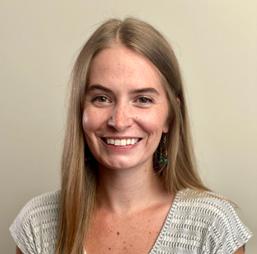
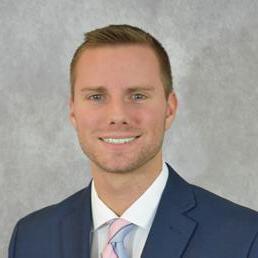
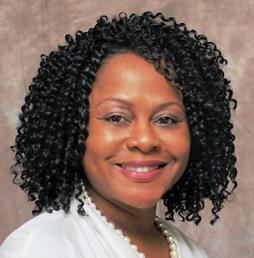

9. Synagis® (palivizumab) prescribing information. Waltham, MA: Sobi, Inc. 2021
10. “Updated guidance for palivizumab prophylaxis among infants and young children at increased risk of hospitalization for respiratory syncytial virus infection,” American Academy of Pediatrics Committee on Infectious Diseases; American Academy of Pediatrics Bronchiolitis Guidelines Committee, Pediatrics, Vol 134, 2014, pp 620-638.
11. “Updated guidance: use of palivizumab prophylaxis to prevent hospitalization from severe respiratory syncytial virus infection during the 2022-2023 RSV season,” American Academy of Pediatrics, November 17, 2022. https://www.aap. org/en/pages/2019-novel-coronavirus-covid-19-infections/clinical-guidance/ interim-guidance-for-use-of-palivizumab-prophylaxis-to-prevent-hospitalization/
12. Zoey Becker, “Beating its rivals, GSK nabs world-first approval for adult RSV vaccine Arexvy®,” Fierce Pharma, May 3, 2023, https://www.fiercepharma.com/pharma/ beating-rival-pfizer-gsk-nabs-world-first-approval-adult-rsv-vaccine-arexvy
13. Aria Bendix, “The race to an RSV vaccine is nearly over, decades after the first attempt” NBC News, February 16, 2023, https://www.nbcnews.com/health/health-news/ rsv-vaccine-candidates-timeline-fda-approval-rcna70777
14. Aria Bendix, “Paving the way for the world’s first RSV vaccine, FDA advisers recommend two different shots,” NBC News, February 28, 2023. https://www.nbcnews.com/health/ health-news/fda-advisers-recommend-first-rsv-vaccine-rcna72535
15. Laura L Hammitt et al., “Nirsevimab for Prevention of RSV in Healthy Late-Preterm and Term Infants,” N Engl J Med, Vol 3, 2022, pp 837-846.
16. “Nirsevimab US regulatory submission accepted for the prevention of RSV lower respiratory tract disease in infants and children up to age 24 months,” AstraZeneca Press Release, January 5, 2023, https://www.astrazeneca.com/media-centre/press-releases/2023/nirsevimab-us-regulatory-submission-accepted-for-the-prevention-of-rsv-lower-respiratory-tract-disease-in-infants-and-children.html
17. “US FDA Advisory Committee votes to support effectiveness and safety of GSK’s respiratory syncytial virus older adult vaccine candidate,” GSK Press Release, March 1, 2023, https:// www.gsk.com/en-gb/media/press-releases/us-fda-advisory-committee-votes-to-supporteffectiveness-and-safety-of-gsk-s-rsv-older-adult-vaccine-candidate/
18. “FDA Review of Efficacy and Safety of Arexvy® Biologics Licensing Application,” FDA Vaccines and Related Biological Products Advisory Committee Meeting, March 1, 2023, https://www.fda.gov/media/165731/download
19. “Vaccines and Related Biological Products Advisory Committee Meeting” FDA, February 28, 2023, https://www.fda.gov/media/165623/download
20. “Pfizer Receives Positive FDA Advisory Committee Votes Supporting Potential Approval for Vaccine Candidate to Help Combat RSV in Older Adults,” Pfizer Press Release, February 28, 2023, https://www.pfizer.com/news/press-release/press-release-detail/ pfizer-receives-positive-fda-advisory-committee-votes
21. “Pfizer Announces Positive Top-Line Data of Phase 3 Global Maternal Immunization Trial for its Bivalent Respiratory Syncytial Virus (RSV) Vaccine Candidate”, November 1, 2022, https://www.pfizer.com/news/press-release/press-release-detail/ pfizer-announces-positive-top-line-data-phase-3-global




